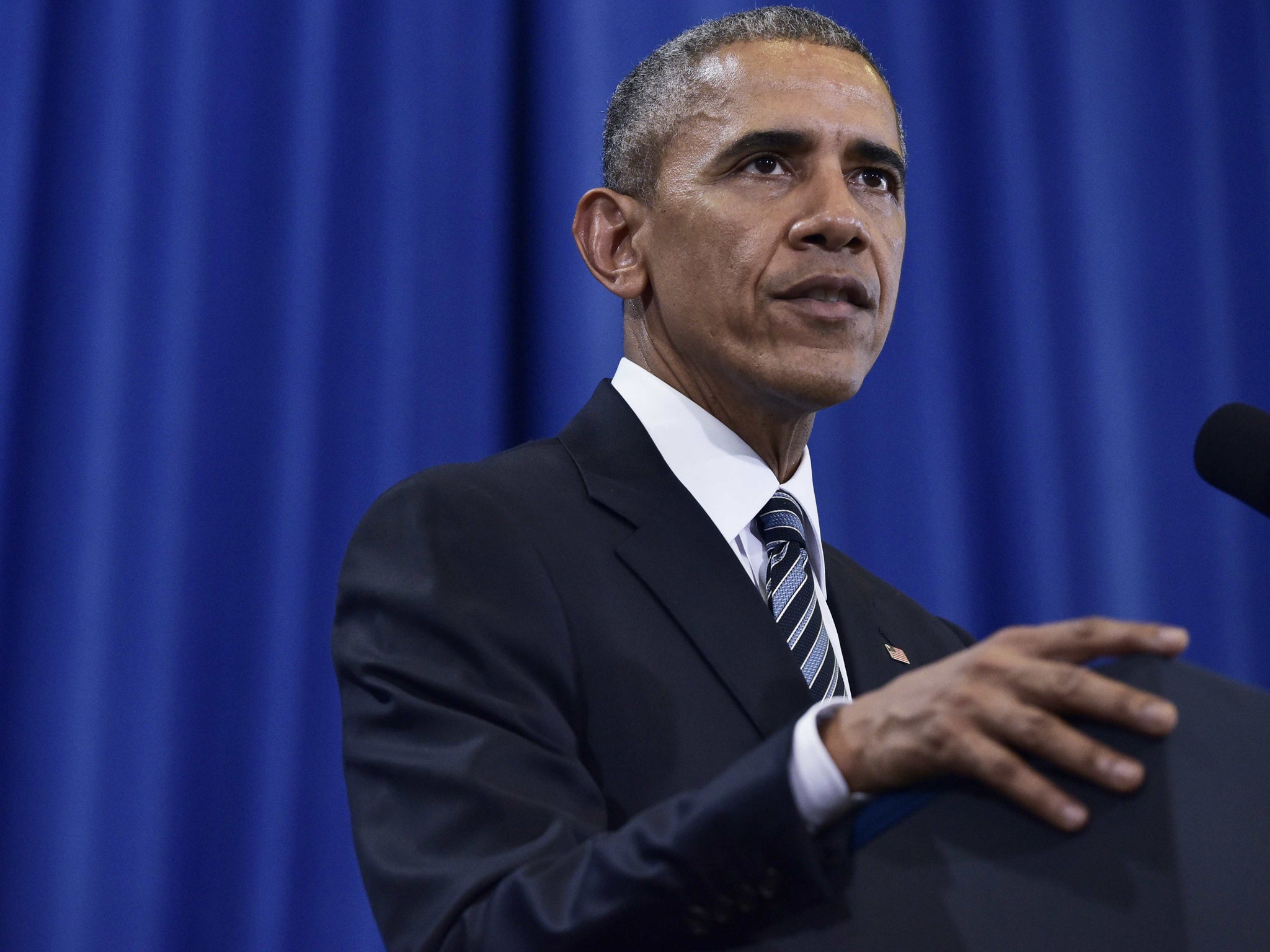Barack Obama orders 'full review' into claims election was hacked by Russia
The Senate Intelligence Committee had previously urged the President to declassify information regarding an existing probe into the DNC hacks

Your support helps us to tell the story
From reproductive rights to climate change to Big Tech, The Independent is on the ground when the story is developing. Whether it's investigating the financials of Elon Musk's pro-Trump PAC or producing our latest documentary, 'The A Word', which shines a light on the American women fighting for reproductive rights, we know how important it is to parse out the facts from the messaging.
At such a critical moment in US history, we need reporters on the ground. Your donation allows us to keep sending journalists to speak to both sides of the story.
The Independent is trusted by Americans across the entire political spectrum. And unlike many other quality news outlets, we choose not to lock Americans out of our reporting and analysis with paywalls. We believe quality journalism should be available to everyone, paid for by those who can afford it.
Your support makes all the difference.President Barack Obama has ordered a "full review" of election-related hacking that many believe affected the outcome of the 2016 election.
"We may have crossed into a new threshold and it is incumbent upon us to take stock of that, to review, to conduct some after-action, to understand what has happened and to impart some lessons learned," said Lisa Monaco, Mr Obama's counterterrorism and homeland security adviser.
The announcement comes amid calls for the recounts from activists and computing experts, who allege anomalies in voting results in crucial states that led to a Trump win.
Mr Obama expects the full report before he leaves office on 20 January. Although Ms Monaco said the report would be shared with members of Congress, it was not clear that the findings would be made public.
Warning of the dangers of national security threats that come from the internet, Ms Monaco said the new administration will "inherit a rapidly growing threat in this space across all dimensions".
California Representative Adam Schiff, a senior-ranking member of the House Intelligence Committee, applauded the Obama administration's announcement, and called for the President to declassify as much of the findings as possible.
"It is clear that the Russians hacked our democratic institutions and sought to interfere in our elections and sow dischord. In this, tragically, they succeeded," he said. "Given President-elect Trump's disturbing refusal to listen to our intelligence community and accept that the hacking was orchestrated by the Kremlin, there is an added urgency to the need for a thorough review before President Obama leaves office next month."
President-elect Donald Trump has remained sceptical of the intelligence community's findings. He denied their claims that the election had been tampered with in an interview with Time magazine, which named him their Person of the Year this week.
"I don't believe it. I don't believe they interfered," Mr Trump said, confirming that he thought the conclusions reached by the Obama-appointed officials were politically driven.
In October, the Department of Homeland Security and the Office of the Director of National Intelligence officially accused Russia of hacking the Democratic National Committee and other political organisations "intended to interfere with the US election process".
Intelligence officials reiterated their accusation earlier this week.
"The US Intelligence Community is confident that the Russian government directed the recent compromises of e-mails from US persons and institutions, including from US political organisations," officials said in a statement to NBC. "We believe, based on the scope and sensitivity of these efforts, that only Russia's senior-most officials could have authorised these activities."
Shortly after the election, two prominent US statisticians called for a recount to rule out the possibility that the outcome was manipulated by outside actors – especially in crucial swing states that ultimately went to Mr Trump.
"The national results could be tipped by manipulating the vote count in a relatively small number of jurisdictions – a few dozen spread across a few key states," said MIT cryptographer Ron Rivest and Berkeley statistician Philip Stark in an editorial published in USA Today.
"We know that the vast majority of local elections officials have limited resources to detect or defend against cyber attacks," the added, claiming that "various aspects of the preliminary results, such as a high rate of undervotes" for Mr Trump "have aroused suspicion".